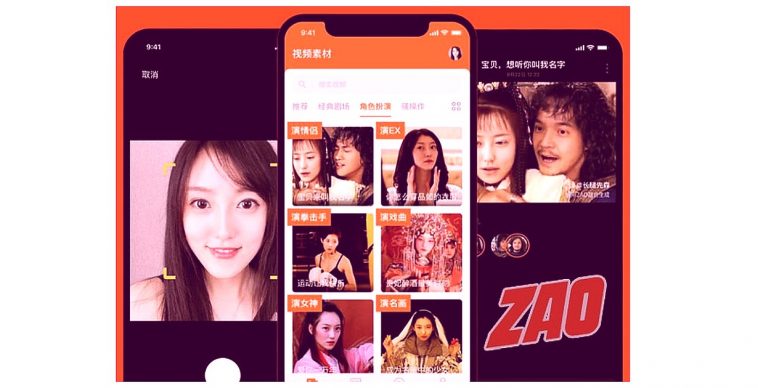Recently the ZAO app has come under immense scrutiny for a clause that appears to allow the developers of the program to hold onto images of user faces and make a profit from them. They can, apparently, sell those images to third party buyers without obtaining the necessary permissions from the users who uploaded them in the first place.
After its debut on August 30 of this year, ZAO was a major hit, especially among Chinese users. It stayed at the top of the list of entertainment apps in the Apple Store for two days after the initial release. It wasn’t long after this that some investigative users found the clause in question, that seemed to grant the company a right to unprecedented trading of uploaded images. However, the primary concern was that there was no consent gathered for said trading. This quickly came to the attention of a group of lawyers who then called the company on a massive invasion of privacy and a boycott soon followed.
ZAO security
The hailstorm of attention has causes Momo to apologize, but further to delete the clause that had so many people rightfully alarmed. This kind of biometric information is supposed to be kept safe. Momo has vehemently stated they will not store this kind of information, and they will not collect information about users either.
The ZAO app is so shocking! #ZAOapp pic.twitter.com/HjbKyPebWu
— Weiya (@WeiyaSong) September 15, 2019
In place of the old clause, a new clause has been written to specify that any transference of user data to any third party would require that authorization be first granted by the users themselves. Even with the proactive measures taken by ZAO and Momo, another popular Chinese messenger app, WeChat, has banned their videos entirely.
Is Zao App Safe to Use?
Furthermore, Momo claims to be working along with China’s Ministry of Industry and Information Technology to help better manage and strengthen their content, ensure personal information is never shared, and that all user information is secure. Users are hoping their images are not being used for facial payment purposes, which have recently been enabled on a variety of platforms.


